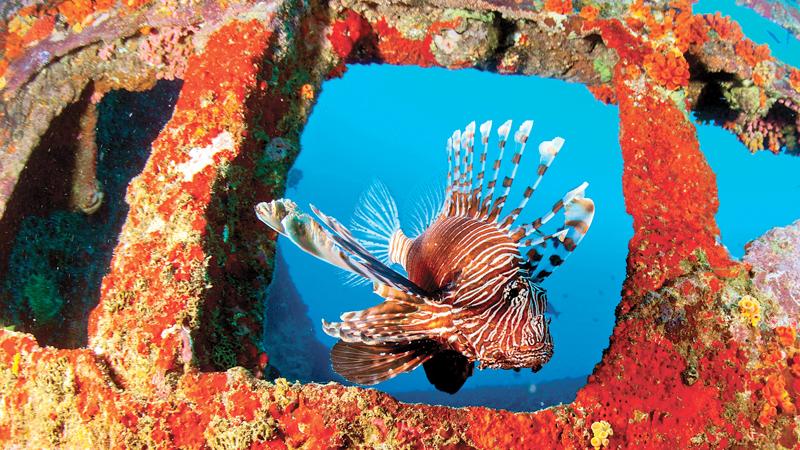
The Wildlife and Nature Protection Society (WNPS) monthly lecture, shipwrecks in Sri Lanka, Archaeological Heritage, Biodiversity Hotspots and Magnets for Recreational Divers will be presented by Coral ecologist Arjan Rajasuriya, Maritime Archaeologist Rasika Mutukumarana, Technical Diver Dharshana Jayawardene and Marine Biologist Chathurika Munasinghe on January 20 at 6 pm at the BMICH.
It will also be delivered via zoom and FB live.
 Sri Lanka has long been at the centre of ancient maritime routes, attracting explorers, traders and invaders for centuries. As with all of mankind’s adventures, there are the inevitable misadventures - resulting in a myriad of shipwrecks dotted along the island’s seabed.
Sri Lanka has long been at the centre of ancient maritime routes, attracting explorers, traders and invaders for centuries. As with all of mankind’s adventures, there are the inevitable misadventures - resulting in a myriad of shipwrecks dotted along the island’s seabed.
They have inadvertently left us a legacy - an unrivalled and unique cultural treasure, lying in the depths of the ocean around us.
These wrecks are part of Sri Lanka’s Maritime Heritage. They are an invaluable source of information to maritime archaeologists because they contain historical information about seafaring, warfare, and life during the period of the sinking.
Sri Lanka has the largest concentration of shipwrecks, including wrecks from two World Wars, and over the years, a booming dive tourism industry has developed around these shipwrecks. From a marine ecology perspective, shipwrecks are of immense value as they become artificial reefs providing a substrate for various sedentary invertebrates to settle on and proliferate and shelter for shoals of fish that take refuge in the sunken structures.
The Wildlife and Nature Protection Society is mandated to preserve and protect the country’s wildlife and nature, including marine habitats and their inhabitants.
Its Marine Committee has been active in creating awareness of the marine environment among the Society’s members and the public. Partnering divers and maritime archaeologists in creating awareness about these rather special underwater habitats is part of its program.
The lecture is open to members and non-members and would be delivered in English and Sinhala. Entrance is free.
